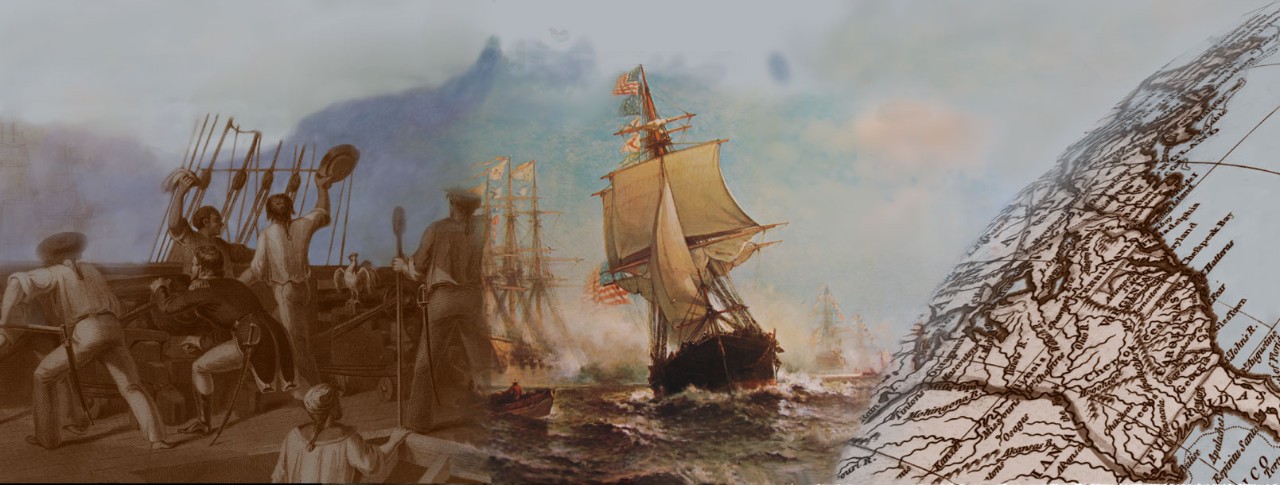
Decatur, Stephen
Stephen Decatur was born in Sinepuxent, Maryland, on 5 January 1779. His father, also named Stephen Decatur, commanded several privateers during the American Revolution and served as a Captain in the young United States Navy during 1798-1801. Young Stephen also joined the Navy in 1798, as a Midshipman, and was active during the undeclared war with France over the next two years. He was promoted to the rank of Lieutenant in 1799. Given command of the brig Argus in 1803, he took to the Mediterranean for war service against Tripoli. Once in the combat zone, Lieutenant Decatur commanded the schooner Enterprise and, on 23 December 1803, captured the enemy ketch Mastico. That vessel, taken into the U.S. Navy under the name Intrepid, was used by Decatur on 16 February 1804 to execute a night raid into Tripoli harbor to destroy the former U.S. frigate Philadelphia, which had been captured after running aground at the end of October 1803.
This daring and extremely successful operation made Lieutenant Decatur an immediate national hero, a status that was enhanced by his courageous conduct during the 3 August 1804 bombardment of Tripoli. In that action, he led his men in hand-to-hand fighting while boarding and capturing an enemy gunboat. Decatur was subsequently promoted to the rank of Captain, and over the next eight years had command of several frigates. On 25 October 1812, while in command of USS United States, he engaged and captured the British frigate Macedonian, an action that gained him further acclaim. The strong British blockade kept Decatur in port for most of the rest of the War of 1812, but he was able to break out of New York in the frigate President on 15 January 1815. Captain Decatur was wounded when his ship was captured the next day by a superior enemy force, but he soon recovered and was given command of a powerful squadron.
With the war with Great Britain at an end, the United States had decided to deal once and for all with the North African Barbary powers' threat to American commerce. Commodore Decatur sailed his squadron to the Mediterranean Sea in May 1815 and, with the assistance of overwhelming force, persuaded Algiers, Tunis and Tripoli to sign treaties of peace. After returning home, he became a member of the Board of Navy Commissioners in Washington, D.C. In April 1816 he made a toast that would become a standard expression of American patriotism: "Our Country! In her intercourse with foreign nations may she always be in the right; but our country, right or wrong."
In 1820 the strong-willed and spirited Decatur was challenged to a duel by a brother officer, Commodore James Barron. The contest, which took place at Bladensburg, Maryland, on 22 March 1820, resulted in wounds to both men. Barron survived, but Stephen Decatur died of his injuries shortly afterwards.
The U.S. Navy has named five ships in honor of Stephen Decatur, including: USS Decatur (1840-1865); USS Decatur (Destroyer # 5), 1902-1920; USS Decatur (DD-341), 1922-1945; USS Decatur (DD-936, later DDG-31), 1956-2004; and USS Decatur (DDG-73), 1998-____.
This page features, and provides links to, all the views we have related to Commodore Stephen Decatur, USN, (1779-1820).
For more views concerning Commodore Decatur, see:


